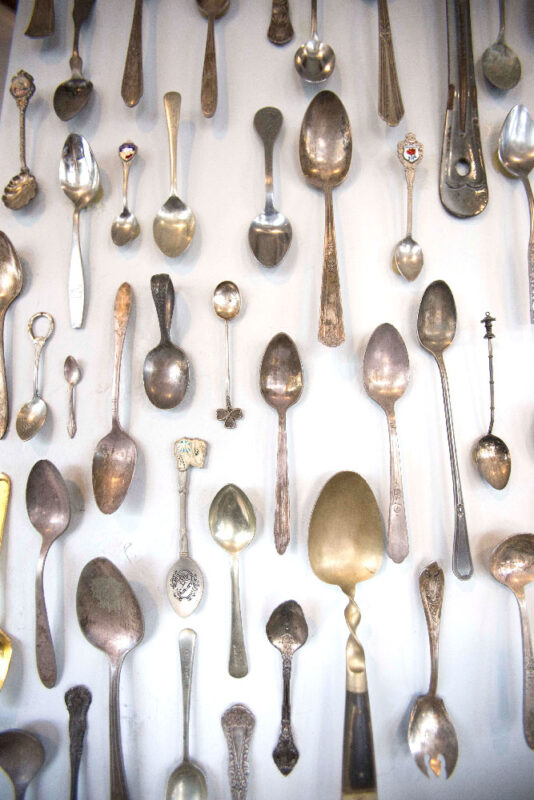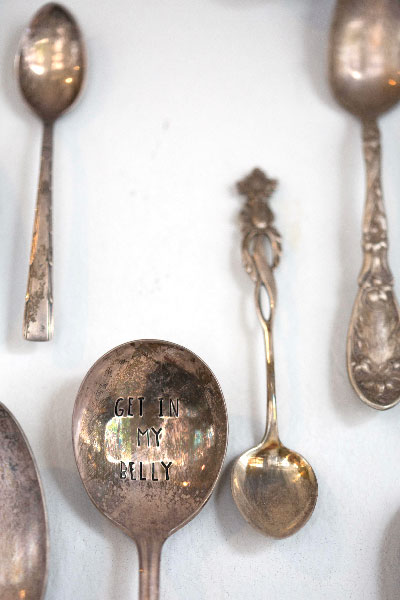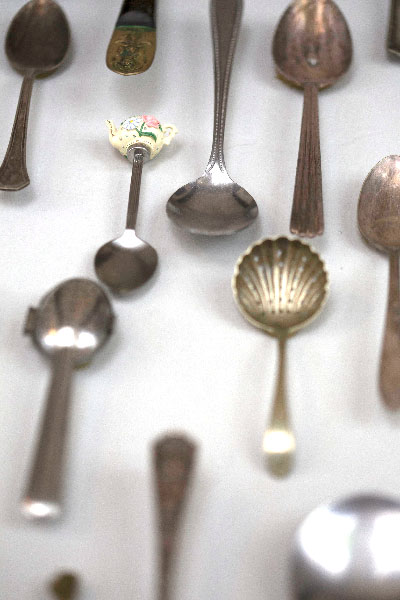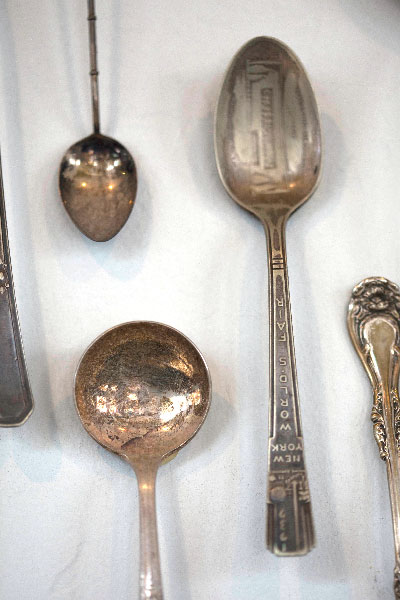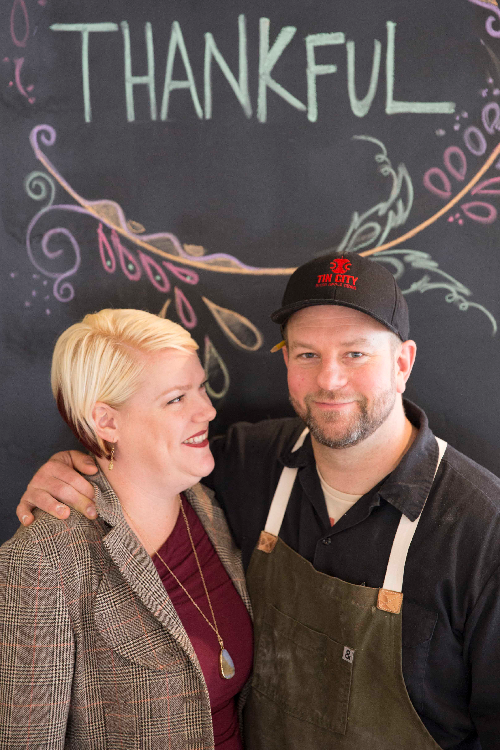about the name
Naming a restaurant is not the easiest task involved in the creation of one…
the basics
A spoon is a utensil consisting of a small shallow bowl, oval or round, at the end of a handle. A type of cutlery (sometimes called flatware in the United States), especially as part of a place setting, it is used primarily for serving. Spoons are also used in food preparation to measure, mix, stir and toss ingredients. Present day spoons can be made from metal (notably flat silver or silverware, plated or solid), wood, porcelain or plastic.
Trade involves the transfer of the ownership of goods or services from one person or entity to another in exchange for other goods or services or for money. Possible synonyms of “trade” include “commerce” and “financial transaction“. Types of trade include barter. A network that allows trade is called a market.
what’s in a name?
Naming a restaurant is not the easiest task involved in the creation of one. For us the name came first and we kept it on the back burner for a potential concept. Now as we develop our business, we know people are wondering, “where did you come up with the name, The Spoon Trade?”
While some may understand the underlying intentions of this name, simply put we are planning to spoon food and trade stories. The following words create a story line for our name and help you to see further inside where we come from.
the story
We are all spoon-fed at some point. Whether it’s a custom solid silver spoon or a silicon object shaped like an airplane, our needs are met by way of one of the oldest tools.
When we look closer at the spoon’s functionality, it remains a common utility in cooking and eating. While we don’t always need them, we will always use them.
Now we are forced to ask who uses spoons more, cooks or eaters?
The average eater may use a spoon to stir their coffee, eat soup or scoop ice cream. This person may use spoons regularly throughout a normal day, but they rarely notice the depth of the spoon, the material or where it was made.
If we choose to immerse ourselves in the business of cooking, the spoon remains a vital tool for execution. The spoon is to a Chef as a paintbrush is to an artist or a hammer is to a builder.
With so many tasks on a Chef’s prep list, the appreciation of a good spoon is heightened.
Chef’s and cooks across the planet keep spoons in their knife kits for a variety or tasks. A Chef will likely have a spoon in his or her pocket at all times, using them also to stir, eat and scoop, but further more to taste, sauce, drizzle, spread, fold and so much more.
If you’ve ever seen an episode of Good Eats, you may have noticed that Alton Brown (the show’s host) is continually pulling a spoon out of his back pocket.
While it’s safe to say that the average person doesn’t carry a spoon around in his or her back pocket, I believe Chefs take the lead on spoon usage.
As a Chef, Jacob Town values his tools and inspires his colleagues to do the same. In the past, Jacob handed out quality spoons to his crew to use for different skills. While this may seem a boring gift to some, Jacob’s crew took the spoons into their collection inspiring new dishes along the way. After seeing all of the wonderful spoons he was acquiring and giving out, Jacob’s wife was compelled to do the same.
Brooke was managing a high volume restaurant and noticed the spoons disappearing at a rapid rate. One day she made her way through the kitchen and realized where many of the spoons were being used. The cooks were using them to compose dishes, leaving the service staff scrambling to keep the spoons stocked. With this, Brooke bought some second hand spoons and began to give them out to the kitchen crew. Brooke was trading the vintage spoons for the restaurant’s spoons, which was a win-win.
It is in this culture that we are inspired to create food and drink for people. It is in this culture that we realize the importance of human interaction. It is in this culture that we welcome you in to use our spoons and trade your stories.
brooke & jacob
Owners of The Spoon Trade

